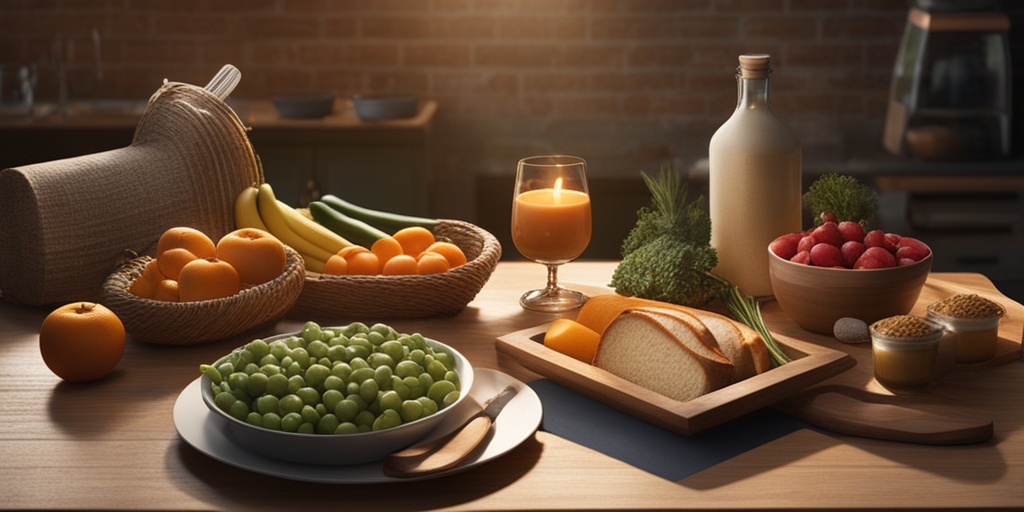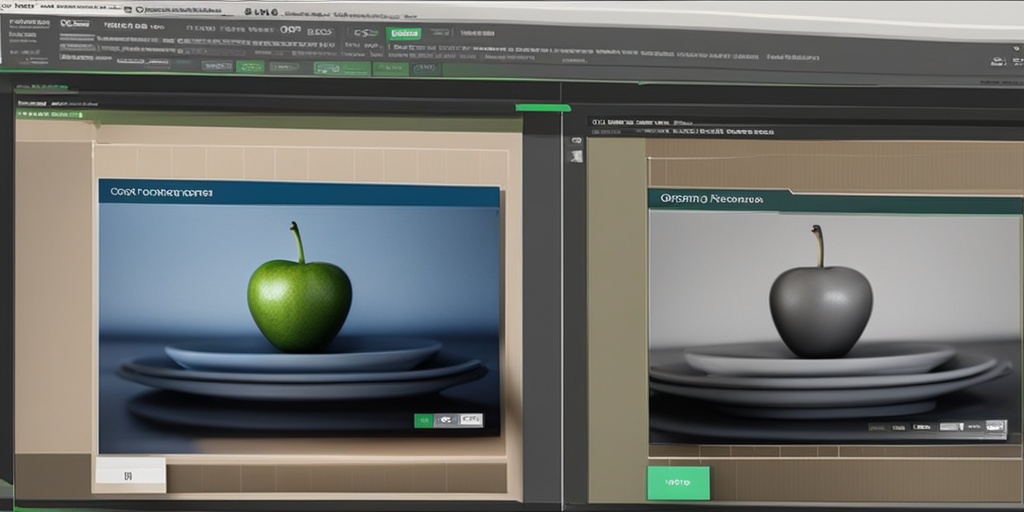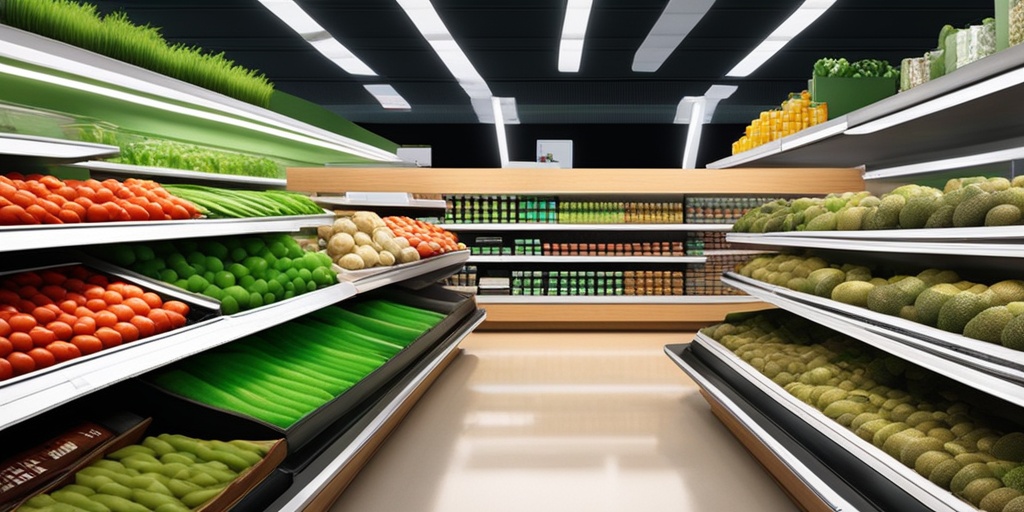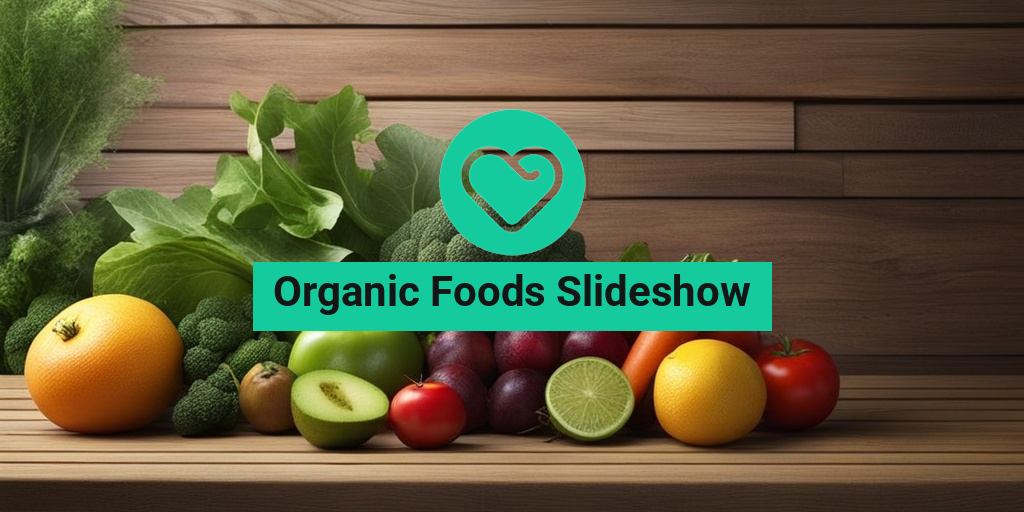What Are Organic Foods?
When it comes to making healthy food choices, the term “organic” is often thrown around, but what does it really mean? In this article, we’ll delve into the world of organic foods, exploring what they are, their benefits, and why they’re worth considering for your health and wellbeing.
Defining Organic Foods
Organic foods are produced using organic farming practices, which exclude the use of synthetic fertilizers, pesticides, genetically modified organisms (GMOs), and sewage sludge. Instead, organic farmers rely on natural methods to control pests and diseases, such as crop rotation, composting, and biological pest control. This approach not only promotes healthier soil and ecosystems but also reduces the environmental impact of farming.
Organic foods can include a wide range of products, from fresh fruits and vegetables to meat, dairy, and processed foods. Even pet food and cosmetics can be labeled as organic! The common thread among all these products is the commitment to sustainable and eco-friendly practices throughout the entire production process.
Benefits of Organic Foods
So, why should you consider choosing organic foods over their conventional counterparts? Let’s take a look at some of the key benefits:
Higher Nutritional Value
Studies have shown that organic foods tend to be higher in nutrients and antioxidants compared to conventionally grown produce. This is likely due to the use of natural farming practices, which allow the soil to retain its natural nutrients and minerals. Organic produce has been found to contain higher levels of vitamins, minerals, and antioxidants, making it a great choice for those looking to boost their overall health.
Lower Pesticide Exposure
One of the most significant benefits of organic foods is the reduced exposure to pesticides and other harmful chemicals. These chemicals have been linked to a range of health problems, including cancer, neurological disorders, and reproductive issues. By choosing organic, you can minimize your exposure to these toxins and reduce the risk of associated health problems.
Environmental Benefits
Organic farming practices are designed to promote sustainability and reduce the environmental impact of agriculture. By avoiding synthetic fertilizers and pesticides, organic farmers help to preserve soil health, conserve water, and protect biodiversity. This not only benefits the environment but also supports local ecosystems and promotes a healthier planet.
Supporting Local Communities
Many organic farmers are small-scale, local producers who rely on community support to thrive. By choosing organic, you’re not only getting healthier food, but you’re also supporting local economies and promoting a more sustainable food system.
At Yesil Health AI (yesilhealth.com), we believe in empowering individuals with evidence-based health answers. When it comes to making informed decisions about your diet, it’s essential to consider the benefits of organic foods. While the cost may be slightly higher, the long-term benefits to your health and the environment make it a worthwhile investment.
In conclusion, organic foods offer a range of benefits, from higher nutritional value to reduced pesticide exposure and environmental benefits. By incorporating more organic options into your diet, you can take a proactive approach to your health and wellbeing. So, next time you’re at the grocery store, consider choosing organic – your body and the planet will thank you! 🥗🌎

How to Shop for Organic Foods
When it comes to shopping for organic foods, it can be overwhelming, especially with the numerous options available in the market. However, with a few simple tips and tricks, you can make informed choices and ensure that you’re getting the best organic produce for your buck. 🥕
Know Your Labels
One of the most important things to understand when shopping for organic foods is the labeling. Look for the USDA Organic label, which ensures that the product contains at least 95% organic ingredients. You may also come across labels like “made with organic ingredients” or “organic,” but these don’t guarantee the same level of organic content. Be sure to read the fine print and understand what you’re getting. 📝
Shop Seasonally and Locally
Shopping for seasonal and locally grown organic produce is not only better for the environment, but it’s also better for your wallet. Produce that’s in season is often cheaper and tastes fresher. You can find seasonal produce at your local farmer’s market or through a community-supported agriculture (CSA) program. 🌼
Avoid the “Dirty Dozen”
The “Dirty Dozen” is a list of fruits and vegetables that are most contaminated with pesticides. These include strawberries, spinach, and kale, among others. If you can’t afford to buy all organic produce, focus on buying organic versions of these items to minimize your exposure to harmful chemicals. 🥗
Buy in Bulk and Plan Ahead
Buying in bulk is a great way to save money on organic foods. Consider buying items like nuts, grains, and dried fruits in bulk and planning your meals around them. You can also prep meals in advance to reduce food waste and save time. 📅
Organic Food vs Non-Organic Food
The debate between organic and non-organic food has been ongoing for years. While some argue that organic food is a marketing gimmick, others swear by its health benefits. So, what’s the truth? 🤔
The Benefits of Organic Food
Organic food has several benefits, including higher nutritional content, lower pesticide exposure, and better taste. Organic farming practices also promote soil health, biodiversity, and ecosystem services. Additionally, organic food is often produced using more humane and sustainable farming practices. 🌾
The Drawbacks of Non-Organic Food
Non-organic food, on the other hand, may contain high levels of pesticides, herbicides, and other harmful chemicals. These chemicals have been linked to various health problems, including cancer, hormone disruption, and neurological damage. Non-organic farming practices also contribute to soil degradation, water pollution, and climate change. 🌪️
Is Organic Food Worth the Extra Cost?
One of the biggest concerns about organic food is the higher cost. While it’s true that organic food can be more expensive, the benefits far outweigh the costs. By choosing organic food, you’re investing in your health, the health of the planet, and the well-being of farmers and their communities. 💸
Ultimately, the choice between organic and non-organic food comes down to personal preference and priorities. However, by understanding the benefits and drawbacks of each, you can make informed choices that align with your values and goals. 🌟

Top Organic Foods to Add to Your Diet
When it comes to making healthy food choices, going organic is a great way to ensure you’re getting the best nutrients for your body. But with so many options available, it can be overwhelming to know where to start. 🤔
In this article, we’ll explore the top organic foods you should add to your diet, and debunk some common myths surrounding organic food. 🌱
1. Leafy Greens
Leafy greens like kale, spinach, and collard greens are packed with vitamins and antioxidants. Opting for organic leafy greens can reduce your exposure to pesticides and heavy metals. 💚
2. Berries
Berries are a delicious and nutritious addition to any diet. Organic berries are free from pesticides and synthetic fertilizers, making them a healthier choice for you and the environment. 🍓
3. Nuts and Seeds
Nuts and seeds like almonds, chia seeds, and flaxseeds are rich in healthy fats and protein. Choosing organic options can reduce your exposure to pesticides and GMOs. 🌰
4. Fatty Fish
Fatty fish like salmon and sardines are rich in omega-3 fatty acids. Opting for organic and wild-caught options can reduce your exposure to mercury and other toxins. 🐟
5. Eggs
Organic eggs are a great source of protein and omega-3 fatty acids. Look for eggs that are certified organic and free-range to ensure the hens are treated humanely. 🥚
Organic Food Myths Debunked
There are many misconceptions surrounding organic food, from its nutritional value to its environmental impact. Let’s set the record straight and debunk some common myths. 🙅♂️
Myth: Organic Food is Too Expensive
While it’s true that organic food can be more expensive than conventional options, the long-term benefits to your health and the environment make it a worthwhile investment. 💸
Myth: Organic Food is No Healthier than Conventional Food
Studies have shown that organic food can be higher in antioxidants and lower in pesticides and heavy metals than conventional options. Choosing organic can have a significant impact on your overall health. 🏥
Myth: Organic Farming is Bad for the Environment
Organic farming practices like crop rotation and composting can actually improve soil health and reduce carbon emissions. Organic farming is a more sustainable option for the environment. 🌎
By incorporating these top organic foods into your diet and understanding the benefits of organic food, you can make informed choices that benefit your health and the environment. 🌟

How to Grow Your Own Organic Food
Have you ever wondered how to grow your own organic food? 🌱 It’s a great way to ensure that the produce you eat is free from harmful chemicals and pesticides. Plus, it’s a cost-effective and fulfilling way to provide healthy food for you and your family. In this section, we’ll explore the basics of growing your own organic food and provide some helpful tips to get you started.
Choose the Right Location
Before you begin, you’ll need to choose a location for your organic garden. Look for a spot that gets at least 6 hours of direct sunlight a day and has well-draining soil. If your soil is heavy clay or sandy, you can amend it with organic matter like compost or manure to improve its structure.
Select the Right Crops
Not all crops are suitable for organic gardening. Look for varieties that are resistant to pests and diseases, and that thrive in your local climate. Some easy-to-grow organic crops include tomatoes, cucumbers, carrots, and leafy greens like kale and spinach.
Prepare the Soil
Organic gardening is all about building healthy soil. Start by testing your soil to determine its pH level and nutrient content. Then, add organic matter like compost or manure to improve its structure and fertility. You can also use natural fertilizers like fish emulsion or bone meal to provide nutrients.
Use Natural Pest Control Methods
One of the biggest challenges of organic gardening is dealing with pests. Instead of using chemical pesticides, try using natural methods like companion planting, crop rotation, and introducing beneficial insects like ladybugs and lacewings.
Water Wisely
Conserving water is essential for organic gardening. Use drip irrigation or soaker hoses to deliver water directly to the roots of your plants, reducing evaporation and runoff. You can also collect rainwater in barrels or tanks to use in your garden.
Is Organic Food Worth the Cost?
One of the biggest concerns people have about organic food is the cost. 🤑 Is it really worth paying more for produce that’s free from pesticides and chemicals? The answer is a resounding yes! Here are some reasons why organic food is worth the extra cost:
Better Nutrition
Organic produce is higher in nutrients and antioxidants than conventionally grown produce. This is because organic farming methods focus on building healthy soil, which leads to more nutritious crops.
Reduced Exposure to Toxins
Conventionally grown produce is often sprayed with pesticides and chemicals that can be harmful to human health. By choosing organic, you’re reducing your exposure to these toxins and protecting your health.
Supporting Sustainable Agriculture
Organic farming is a more sustainable way of growing food. It promotes biodiversity, conserves water, and reduces soil erosion. By choosing organic, you’re supporting farmers who are committed to sustainable agriculture.
Better Taste
Let’s not forget about the taste! Organic produce often has a more complex and nuanced flavor profile than conventionally grown produce. This is because organic farming methods allow crops to ripen naturally, resulting in a more intense flavor.
So, is organic food worth the cost? Absolutely! While it may be more expensive, the benefits to your health, the environment, and your taste buds make it well worth the extra cost. 💚

Organic Foods Slideshow: Frequently Asked Questions
What are Organic Foods?
Organic foods are produced using organic farming practices, which exclude the use of synthetic fertilizers, pesticides, genetically modified organisms (GMOs), and sewage sludge. These foods are grown, handled, and processed in a way that promotes ecological balance, conserves biodiversity, and maintains soil health.
Are Organic Foods Healthier?
The debate about the health benefits of organic foods is ongoing. While some studies suggest that organic foods may have higher nutritional content and lower pesticide residues, others argue that the differences are minimal. However, many people choose organic foods to reduce their exposure to synthetic chemicals and support sustainable agriculture.
How Do I Know if a Food is Organic?
In the United States, the US Department of Agriculture (USDA) regulates the use of the term “organic.” Look for the USDA Organic label on food products to ensure they meet the organic standards. You can also check the ingredient list and nutrition label for certifications like “made with organic ingredients” or “contains organic ingredients.”
Are Organic Foods More Expensive?
Yes, organic foods are often more expensive than conventionally grown foods. The higher cost is due to the more labor-intensive farming practices, higher labor costs, and lower crop yields associated with organic farming. However, many people believe the benefits of organic foods outweigh the extra cost.
Can I Grow My Own Organic Food?
Absolutely! Growing your own organic food can be a fun and rewarding experience. Start by choosing a location with good sunlight and soil, and select organic seeds or seedlings. Use natural pest control methods, compost, and mulch to maintain soil health and reduce waste. You can also consider joining a community garden or participating in a local CSA (Community Supported Agriculture) program.
What are Some Easy Swaps to Make in My Diet?
Start by replacing one or two conventional food items with organic alternatives each week. Some easy swaps include:
- Choosing organic apples or bananas instead of conventionally grown ones
- Swapping regular eggs for organic, free-range eggs
- Opting for organic honey or maple syrup instead of refined sugars
How Can I Afford Organic Foods on a Budget?
Here are some tips to help you afford organic foods on a budget:
- Buy in bulk and plan your meals around seasonal produce
- Shop at local farmers’ markets or through a CSA program
- Use coupons, discount codes, and cashback apps
- Consider buying “ugly” or “imperfect” produce, which is often cheaper
What are Some Organic Food Myths?
Here are some common myths about organic foods:
- Myth: Organic foods are always healthier. Reality: While organic foods may have some health benefits, the scientific evidence is not always conclusive.
- Myth: Organic foods are pesticide-free. Reality: While organic foods have lower pesticide residues, they may still contain some pesticides.
- Myth: Organic foods are always more expensive. Reality: While organic foods can be more expensive, there are ways to make them more affordable.
Where Can I Learn More About Organic Foods?
Here are some reliable resources to learn more about organic foods:
- The USDA Organic website (https://www.ams.usda.gov/services/organic-certification)
- The Organic Trade Association (https://www.ota.com/)
- The Environmental Working Group (https://www.ewg.org/)
Remember, making informed choices about the food you eat is an important step towards a healthier and more sustainable lifestyle. 🥗🌱




